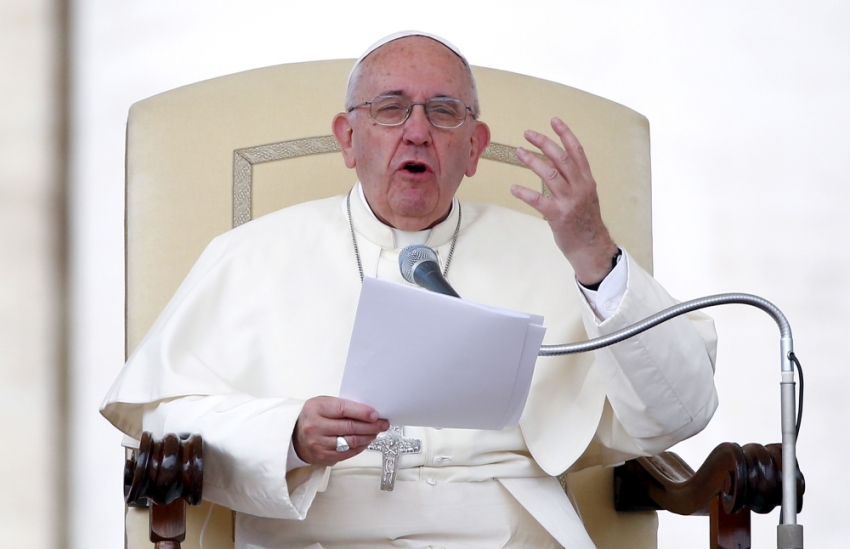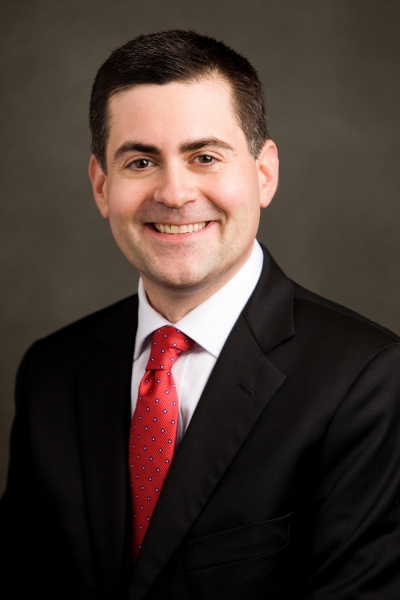Where Pope Francis Is Right — and Wrong — On Abortion and Mercy

In recent weeks Pope Francis made headlines by announcing that Catholic women who have had abortions, and are repentant, may receive forgiveness during this "Year of Mercy" by going directly to any priest for confession, without the direct authorization of the bishop.
As an evangelical, this news focused in on the areas where I most agree and where I most disagree with the bishop of Rome. More importantly, the way this news was received ought to tell us as evangelical Protestants something about our responsibility for gospel witness.

Let me start with where I think the Pope is right. He is right that the abortion of an unborn child is a grave sin, one that needs forgiveness. In this, we have not only the witness of Scripture about the humanity of the unborn and the prohibition on murder, we also have what the Apostle Paul calls "the law written on the heart" (Rom. 2:15).
He is also right that the church's mission must be one of mercy. As is always the case when one speaks of mercy and grace, some wrongly interpret this as the Pope's "shifting" on abortion, but this only goes to demonstrate how alien the concept of forgiveness of sin has become in the world around us. Pope Francis is rightly admired as a man of deep compassion for those in broken situations.
That said, the Pope's pronouncement reminds those of us who are convictional Protestants of what we are, in fact, "protesting" against after these 500 years.
In Roman Catholic theology, the church is the dispensary of the grace of God through its sacraments and rites. This is at the heart of Martin Luther's theses against the medieval church for the selling of indulgences, which were also from the pronouncement of the Pope and also for the forgiveness of sin. The very conversation brings up just about every fracture between Roman Catholics and evangelical Protestants — from the papacy to the doctrine of the church to, most fundamentally, the question that prompted Mr. Luther's protest in the first place: "What shall I do with my guilt?"
In an Evangelical doctrine of the church, apostolic authority adheres not in a succession of bishops but in the ongoing witness of the apostolic writings — the Bible. The Apostle Paul's authority, for instance, did not come from the other apostles but from his encounter with Christ Jesus and from the content of his gospel (Gal. 1:11-2:10). Forgiveness comes not from a system of rites and clergy but from a personal encounter, by faith, with the content of the gospel of the blood and righteousness of Jesus Christ. The sinner who looks to Christ, as offered in his atonement for sin, is forgiven, full stop (Jn. 3:14-17). The entire point of Paul's letters to the Romans and to the Galatians is that the sacrifice of Christ is received by the sinner through faith. The entire point of the epistle to the Hebrews is that Christ Jesus now serves as high priest, standing and interceding before God with his own blood, for any sinner who comes to him by faith.
The church bears witness to this gospel and recognizes those who are defined by it through baptism and the discipline of the church, but the church stands under the gospel, not as the dispensary of it. The Spirit blows where he wills.
Here's why this is important. The Pope recognizes that there are many whose consciences are weighted down by the sin of abortion. This is true, I would add, not only of women who have had abortions but also of men who have participated in these as well. Often these consciences are further weighted down by the secrecy of the act, secrecy that breeds shame. Because these women and men feel alone in their guilt, they sometimes feel as though their sin is unforgivable, as though they really aren't included in the "whosoever will" of the gospel call.
The gospel means that we speak clearly of God's judgment, the truth the conscience already fears but tries to suppress (Rom. 1-3). But we explain that God's judgment is not only on the obviously horrible sins, such as abortion, but is upon every violation of God's law (Jas. 1:10-11). In Christ, that judgment has fallen on the quivering body of a sinless, crucified Jesus — accused by Satan, indicted by the Law, enveloped by the curse (Gal. 3:10-14). In the resurrection of Jesus, God has accepted a once for all sacrifice for sin (Heb. 5:7-9).
Jesus has declared himself to be the Year of Mercy, the Year of Jubilee (Lk. 4:18-19). Therefore, the church's mission is to go to the lost and the guilty and proclaim the news we sinners received ourselves, "Come, for everything is now ready" (Lk. 14:17). We say to the world, "Behold, now is the favorable time, now is the day of salvation" (Heb. 6:2).
The greatest antidote to an abortion culture is the gospel. The abortionists feed on fear and secrecy and shame. We have a different word. The repentant sinner should hear from us that, if he or she is hidden in Christ by faith, God does not see her as "that woman who had the abortion" or "that man who empowered the abortion." The sinner hasn't escaped hell by finding a "loophole" to the Law. In Christ, this person has already been to hell. In the cross, God is both just and the justifier of the one who has faith (Rom. 3:26). And in the resurrected Christ, God has already pronounced what he thinks of this person: "You are my beloved child and in you I am well pleased" (Mk. 1:11).
Gospel clarity means that we should have more women and men, who've been redeemed from abortion, telling their stories, openly, in our churches. This won't encourage abortion. As Paul would say, "God forbid!" It will instead warn of God's coming judgment on all sin, including violence against the vulnerable unborn, while at the same time announcing the good news that there is no sin, including violence against the vulnerable unborn, that cannot be cleansed by the blood of Christ (1 Jn. 1:9).
We all need that kind of mercy. The good news is that we have a High Priest, standing in the heavenly tabernacle, who is ready to dispense it. And he needs nobody's permission.
This article was orignially posted here



























